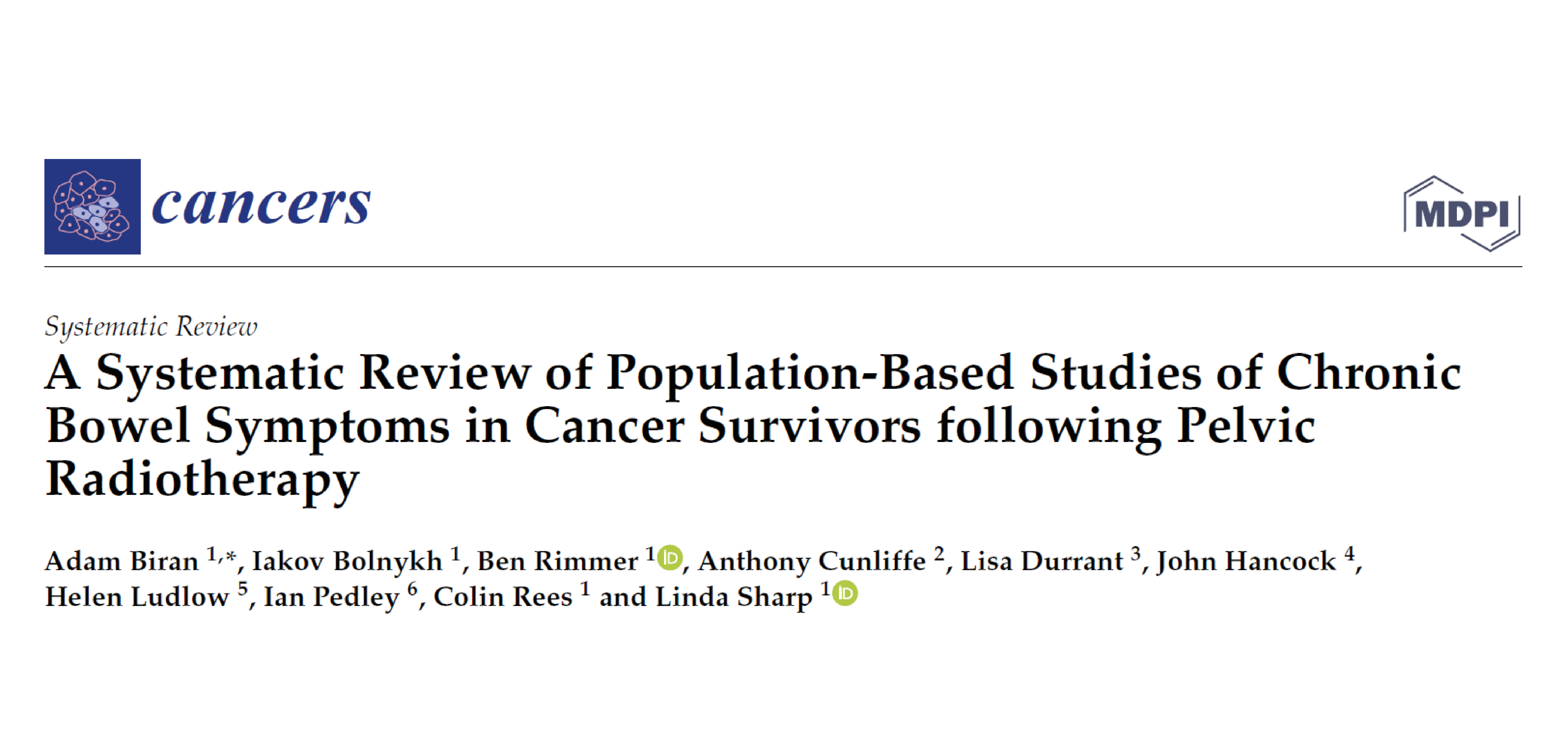
The COLO-SPIRIT team have published their review of existing research into long-term bowel symptoms amongst cancer survivors, in the journal "Cancers”. You can access the paper on our website and online, but below is a summary of what the paper said:
Pelvic radiotherapy is radiotherapy used to treat cancers in the lower abdomen or pelvis (such as prostate, gynaecological and bladder cancers). Radiotherapy can damage parts of the body close to the area affected by cancer, causing long-term problems. Pelvic radiotherapy can cause damage in the lower abdomen, with possible long-term problems including bowel symptoms such as bleeding, pain and incontinence. It is not clear how many patients are affected with which bowel symptoms or how severe these symptoms are. In order to support patients affected by bowel symptoms after pelvic radiotherapy, it is important that we more fully understand these symptoms and patients' experiences.
The purpose of a review is to bring together and summarise the best information from existing research. In this review, COLO-SPIRIT researchers identified and summarised the findings from 45 published studies in which people who had been treated with pelvic radiotherapy completed questionnaires about their experience of bowel symptoms. The questionnaires asked about what symptoms people experienced, how often the symptoms occurred and how bad they were. The information was collected from people who had bowel symptoms 6 months or more after their radiotherapy treatment ended. This was to find out about persistent, long-term symptoms and not short-term symptoms that are common during treatment but get better quickly after the treatment ends.
Overall, the information summarised in the review supported the idea that long-term bowel symptoms are a big problem for many people after pelvic radiotherapy. Unfortunately, the 45 different studies did not all measure bowel symptoms in the same way or at the same point in time after treatment. Because of these differences it was impossible to say exactly how many people are affected, or how badly. The COLO-SPIRIT team recommended that future studies should try to use consistent methods for measuring these symptoms and should also collect more information about the characteristics of people who experience symptoms. Additionally, since most research has focused on prostate cancer, future research should include long-term bowel symptoms after pelvic radiotherapy for people with less frequently studied types of cancer (such as gynaecological and bladder cancers).
For further information on COLO-SPIRIT, please visit the study page below:






